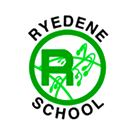MAT Peer Reviews
One of the principal aims of the Lee Chapel Multi Academy Trust is to champion a culture of continual school-led improvement. The Lee Chapel MAT school-to-school Peer Review Programme enables schools to build strong, supportive and mutually beneficial relationships that deliver sustainable self-improvement.
All schools take part in our Peer Review. It is a process that enables school leaders from across the Trust to help each school evaluate its own effectiveness. Peer reviews generate constructive feedback on the quality of teaching and learning and the effectiveness of school improvement strategies. Each school hosts a termly peer review team. The findings of the review will confirm strengths of school performance and identify areas for development.
Lee Chapel MAT Peer reviews allow all participants to:
- Gain from shared experiences of how other schools work.
- Work with others within an agreement of open debate and ideas sharing.
- Gain confirmation of positive aspects of school practice, which might have been taken for granted.
- Listen to suggestions that internal self-evaluation processes might have missed, possibly because an external, objective perspective was needed.
- Bring staff together for a joint focus on evaluation and improvement, so that the peer review is appreciated as a positive experience by the staff in each school
A key feature of these reviews is that a member of the Lee Chapel Trust Board is invited to take part in each, so that there is an objective perspective provided.
The Lee Chapel Trust uses the following nine principles for effective school-to-school peer review:
- Committed to better outcomes for all – There is a shared responsibility to establish improvement across all schools and not just one’s own, including the sharing of good practice identified in reviews. The desire for mutual gain is imperative for success.
- Action focused – Peer review is set up with the intention of acting as a result of the review, whether to address a deficit or to get even better. Peer review provides evidence of strengths and areas for improvement but is not a standalone activity. Reviews must be part of wider processes that provide sustained support for evidence-based improvement.
- Rigorous and objective – The team should always consist of peer leaders with the professional distance to give a truly honest appraisal of where the school is in its journey and the experience to insightfully present evidence.
- Structured and robust – The approach used in the review should have a clear structure so that the evidence collected is impartial, defensible and is action-focused, with all actions owned by the reviewed school.
- Expert and evidence led – The reviewers should be given the training and support to be(come) experts in peer review; their diagnosis of school performance should be rooted in evidence, as should any suggestions about potential actions.
- Done with, not to, the school – Peer review drives more transparent and honest self-review, should engage as much of the school workforce as possible and always be reciprocated.
- Open and trusted – The reviewed school is able and willing to expose its vulnerabilities, in order to elicit new perspectives on the challenges it faces.
- Builds deeper relationships – Peer reviews lead to abiding collaborative partnerships which can evolve over time to enable stronger, closer working in local clusters. There is also an opportunity to share more widely as part of a national drive for improvement.
- Commitment to continuous improvement – Peer review itself should always be kept under review and providers of peer review programmes must have embedded structures and processes to evaluate the effectiveness of the process and commit to continuous improvement.
If you would like a Peer-to-Peer review for your school by the Lee Chapel Multi-Academy Trust, please contact 01268 474177 or email admin@leechapel.essex.sch.uk






